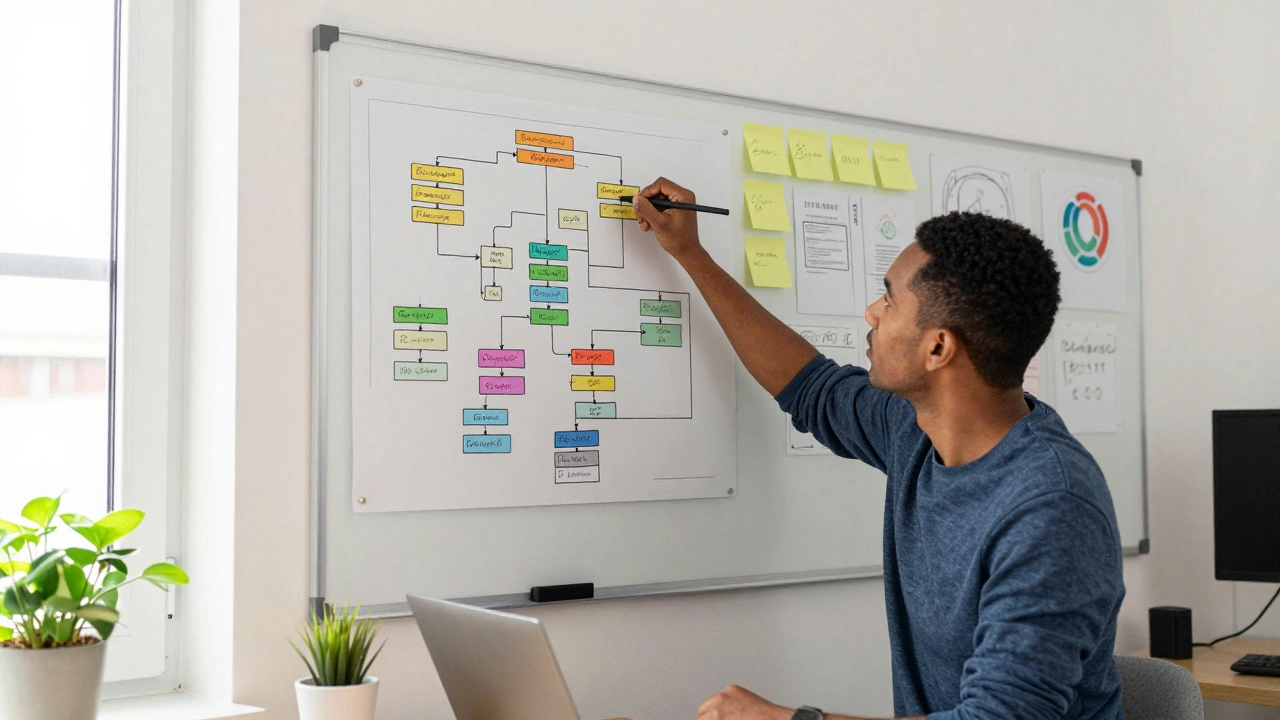Adult Education: Practical Tips and Resources for Lifelong Learners
If you’re juggling a job, family, or other responsibilities, learning as an adult can feel like a tall order. The good news? You don’t need a classroom full of teens to pick up new skills. With the right plan, a few focused habits, and a bit of guidance, you can study effectively and see real results.
Adult education isn’t just about getting a new qualification – it’s about staying curious, improving your earning power, and keeping your brain sharp. Whether you aim to switch careers, earn extra income from home, or simply explore a hobby, the resources on this page will help you start right away.
How to Pick the Right Course
First, ask yourself what you really want. Are you after a fast‑track certificate that can lead to a new job, or a broader degree that opens many doors? Check the course length, cost, and reputation. For most adult learners, short online programs that offer a clear outcome (like a digital marketing certificate or a bookkeeping diploma) work best because they fit into a busy schedule.
Look for courses that use active learning methods – things like quizzes, real‑world projects, and discussion forums. These keep you engaged and make the material stick. If the provider offers a free trial or a money‑back guarantee, try it out before you commit.
Study Strategies That Really Work
One of the most effective ways to remember new information is the combination of active recall and spaced repetition. Instead of rereading notes, pause and ask yourself what you just learned. Write a quick answer, then check if you’re right. Do this a few times over the next days, gradually increasing the interval between sessions. The technique works for language lessons, technical skills, and even exam prep for adult certifications.
Another tip is to create vivid cues. Link a concept to a picture or a personal story. For example, if you’re learning accounting terms, picture a cash register that only accepts "debits" and "credits" as coins. The brain remembers images better than abstract words.
Set a realistic study schedule. Even 30 minutes a day beats cramming a whole weekend. Pick a time when you’re least likely to be interrupted – early morning, lunch break, or right after dinner. Use a simple timer to block out a focused session, then take a short break to avoid burnout.
Don’t forget the power of community. Join a study group on social media, attend occasional webinars, or pair up with a fellow learner for accountability. Sharing progress and challenges makes the journey less lonely and more motivating.
Adult education also opens doors to higher‑pay remote work. Check out our posts on "Most In Demand Online Jobs in 2025" and "Earn $80K a Year from Home" for ideas on how to turn new skills into income streams.
If you’re worried about funding, explore scholarship options. Many organisations offer merit‑based or need‑based scholarships specifically for adult learners returning to study. Our guide on "Scholarship Types" breaks down how to find and apply for them.
Finally, keep your learning goals flexible. Life will throw curveballs – a new project at work or a family commitment. When that happens, adjust your study plan rather than abandoning it. Remember, progress is a marathon, not a sprint.
Ready to start? Browse the articles below for step‑by‑step advice, real‑world examples, and tools that make adult education doable. Your next skill is just a click away – go ahead and give yourself the chance to blossom.

What Are the Three Major Adult Learning Styles?
- by Eliza Fairweather
- on 9 Feb 2026
Discover the three major adult learning styles - visual, auditory, and kinesthetic - and how to use them to learn faster and retain more. Tailor your study methods to how your brain works best.

What Are the Five Pillars of Adult Learning Theory?
- by Eliza Fairweather
- on 22 Jan 2026
Discover the five pillars of adult learning theory that explain how grown-ups learn best-relevance, hands-on practice, experience, goals, and control. Used in workplaces, online courses, and community programs worldwide.

How to Start Teaching Adults: A Practical Guide for New Instructors
- by Eliza Fairweather
- on 15 Jan 2026
Learn how to start teaching adults by focusing on real goals, respecting experience, and creating practical, safe learning environments. No degree needed-just the right approach.

What Is the Purpose of Adult Education? Real Reasons People Go Back to Learn
- by Eliza Fairweather
- on 12 Jan 2026
Adult education helps people rebuild skills, stay employed, gain confidence, and connect with their communities. It’s not about degrees-it’s about real life changes.

What Is the Value of Adult Learning? Real Benefits for Work, Life, and Future
- by Eliza Fairweather
- on 25 Dec 2025
Adult learning isn't about going back to school-it's about growing forward. Discover how learning new skills boosts your pay, keeps your mind sharp, and rebuilds confidence at any age.

What Is the Study of Adult Education Called?
- by Eliza Fairweather
- on 8 Dec 2025
The study of adult education is called andragogy. It's the science of how adults learn differently from children, focusing on experience, self-direction, and real-world application. This approach powers workplace training, community programs, and online courses worldwide.

What Are the 5 Adult Needs in Learning and Why They Matter
- by Eliza Fairweather
- on 24 Nov 2025
Adults learn differently than teenagers. Discover the five core needs-relevance, autonomy, respect, application, and community-that make or break adult education success.

How Adults Learn Most Effectively: Science-Backed Strategies That Actually Work
- by Eliza Fairweather
- on 15 Nov 2025
Adults learn best when they connect new skills to real-life experience, practice in short bursts, get immediate feedback, and learn with others. Science-backed strategies that actually work for busy adults.

Most Common Learning Style for Adults Explained
- by Eliza Fairweather
- on 26 Oct 2025
Explore which learning style adults use most, why visual dominates, and how to design effective adult education that blends VARK, Kolb, and andragogy principles.

4 Core Learning Styles Explained - A Guide for Adult Learners
- by Eliza Fairweather
- on 25 Oct 2025
Discover the four classic learning styles, how to identify your preference with the VARK model, and practical ways to apply them in adult education.

Three Core Theories of Adult Learning Explained
- by Eliza Fairweather
- on 18 Oct 2025
Explore the three core adult learning theories-Andragogy, Transformative Learning, and Experiential Learning-with real examples, a comparison table, and practical design tips.

Adult Basic Learning: Essential Skills for Everyday Confidence
- by Eliza Fairweather
- on 25 Jul 2025
Adult basic learning unlocks essential skills like reading, writing, and maths, boosting everyday confidence for adults who missed out before.
